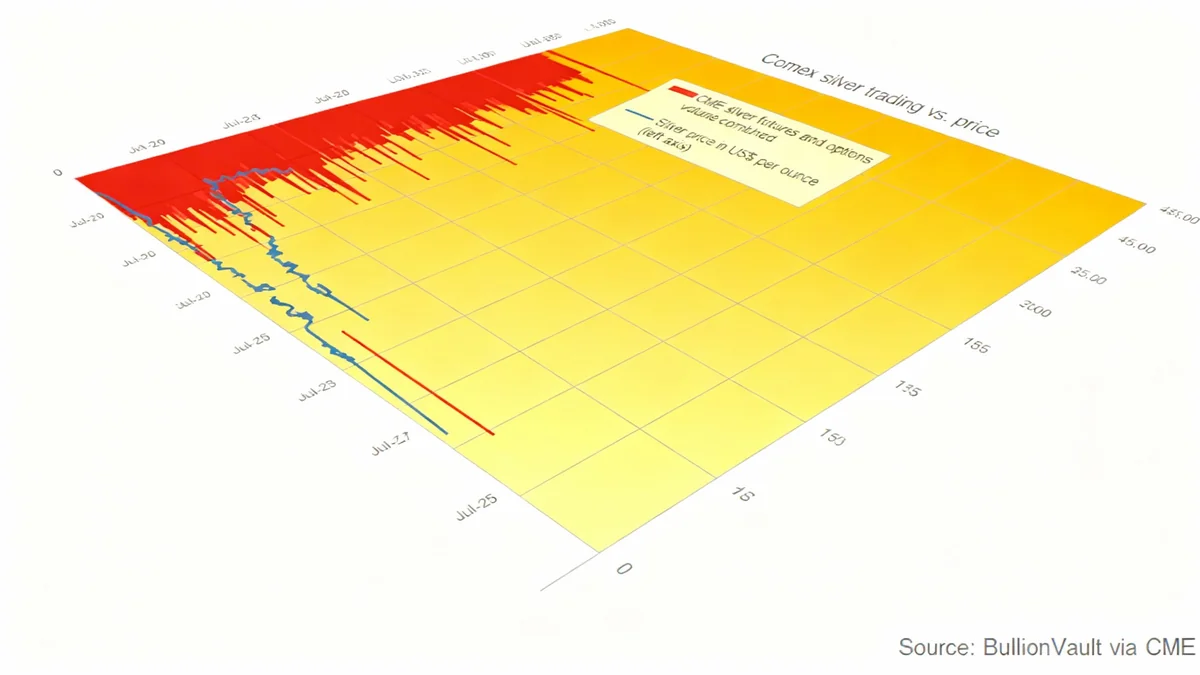Saudi Arabian equities experienced their steepest decline since late September on Sunday. This downturn followed an announcement from the country's markets regulator, suggesting that reforms aimed at increasing foreign ownership in local companies might take longer than initially expected.
The Tadawul All Share Index dropped by 1% in its second consecutive session of losses. Banking shares were hit particularly hard, with Al Rajhi Bank falling to a five-week low. Many companies, including Al Rajhi, had seen rallies based on the anticipation that foreign ownership rules would be relaxed before the end of 2025.
Key Takeaways
- Saudi equities dropped 1% following news of delayed market reforms.
- The Capital Market Authority (CMA) now expects foreign ownership rule updates in 2026.
- Banks, including Al Rajhi Bank, saw significant losses.
- Foreign investor purchases hit a record 40% in September despite overall market slowdown.
- The CMA remains committed to opening markets but is still deciding on the scope of the ownership cap change.
Foreign Ownership Rules Pushed to 2026
The head of the Capital Market Authority (CMA), Mohammed El-Kuwaiz, stated on Thursday that updates to foreign ownership rules will now occur in 2026. This announcement shifted previous expectations among investors.
Many had anticipated these rules would change before the end of 2025. The reforms aim to allow international investors to own more than a 49% stake in Saudi companies. This prospect had fueled significant interest and investment in the market.
Market Snapshot
- Tadawul All Share Index: Down 1%
- Al Rajhi Bank: Slipped to a five-week low
- Previous Expectation: Reforms by end of 2025
- New Timeline: Updates in 2026
While the country is committed to opening its markets, the CMA has not yet decided whether to completely remove the foreign ownership cap or to lift it gradually. This uncertainty is contributing to investor caution.
Impact on Banking Sector and Investor Sentiment
The banking sector felt a significant impact from the news. Al Rajhi Bank, a major player, experienced a notable slump. This reaction highlights how sensitive the market is to regulatory changes and the timing of their implementation.
Fadi Arbid, founding partner and chief investment officer at Amwal Capital Partners, commented on the situation. He noted that the current market reaction is primarily due to "technicalities now and investors wanting more clarity."
"The good thing is the CMA has been clear about its direction. It’s not a matter of if. It’s not a matter of if. It’s a matter of when and how."
This sentiment suggests that while the delay is causing short-term uncertainty, the long-term commitment to market opening is still viewed positively by some experts.
Saudi Arabia's Broader Reform Agenda
The Saudi regulator has been implementing rapid changes over recent years. Their primary goal is to attract more foreign capital to the country's substantial $2.6 trillion stock market. These efforts are part of a broader economic transformation plan.
Recent steps include opening equities to all categories of foreign investors. The CMA also launched local depositary receipts for foreign firms, further integrating its market with global investment streams.
Driving Foreign Capital
Saudi Arabia is among the most closely watched reform stories in emerging economies. Global investors are actively seeking opportunities to diversify their portfolios beyond traditional assets, particularly those in the US.
The kingdom's reform agenda is attracting significant attention. Investors worldwide are looking for new avenues for growth and diversification, and Saudi Arabia presents a compelling option.
Foreign Purchases Reach Record Highs
Despite a general slowdown in overall Saudi equity demand this year, partly due to lower oil prices, foreign purchases have shown remarkable strength. In September, foreign purchases rose to a monthly record of 40%.
This surge in foreign investment indicates a strong belief among international players that the reform agenda will ultimately boost trading activity and increase the average daily traded value over time. Bloomberg Intelligence analysts Nicholas Phillips and Deniz Besiroglu highlighted this trend.
The commitment to market reforms, even with delays, is seen as a key factor that will enhance the market's appeal. This long-term outlook appears to outweigh some of the immediate challenges, such as fluctuating oil prices.
Looking Ahead: Clarity and Continued Reforms
Investors are now keenly awaiting more details from the CMA regarding the exact nature and timeline of the foreign ownership rule updates in 2026. Clarity on whether the cap will be eliminated entirely or lifted gradually will be crucial.
The Saudi market remains a focal point for emerging market investors. Its ongoing reforms represent a significant effort to modernize and globalize its financial landscape, promising potential for future growth once regulatory certainty is established.
The current market dip serves as a reminder of the sensitivity of financial markets to regulatory announcements, even when the overall direction of reform remains positive.





